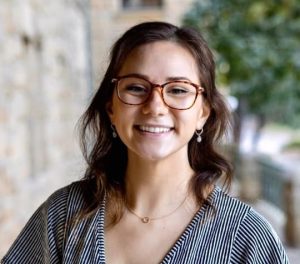
Read the following interview by Osher Program Coordinator, Emma Owings, with Dr. Wren Burton, the Osher Center’s First Chiropractic Research Fellow.
Q: What is your research area of focus?
WB: My research is focused primarily on pain, but first on pinpointing the mechanisms behind how it impacts our interactions with the world around us. My goal is to evaluate the contributions of multimodal chiropractic care on previously identified modifiable fall risk factors, chiefly the interaction between pain and mobility in older adult populations.
Q: What led you to your interest in integrative medicine?
WB: While my clinical chiropractic training focused on the diagnosis and treatment of musculoskeletal conditions, my research training thus far has informed various aspects of my research and guided my interest in integrative medicine. Early in my education, I founded a clinical outreach committee to provide volunteer healthcare services to local underserved communities. This experience revealed to me not only the importance of integrative care, but the need for rigorous scientific research to define the role of chiropractors in the clinical management of modifiable fall risk factors in older adults. Throughout my chiropractic education, I continued to seek out experiences to work in research focused integrative care settings where I could work with underserved and older adult populations and completed my clinical rotations at the United States Department of Veterans Affairs. These experiences allowed me to transition seamlessly into working as a research assistant on a multidisciplinary health care team before beginning my fellowship.
Q: What currently motivates your work?
WB: This question is challenging to answer because day-to-day it feels as though I draw from many sources of motivation. First, my clinical work. I think of my patients and wanting to do everything I can to ensure that they receive the most evidence informed and empathic care possible; and so much of that is found in integrative medicine. Second, my personal experiences. Seeing those I love age into being older adults drives me to seek out answers regarding what is the best treatment for them but also affords me a real-world perspective when considering how to assess these treatments in research. Lastly, I reflect frequently on my volunteering experiences and always try to consider ways to improve the accessibility of integrative medicine to underserved populations.
Q: Have you encountered any surprising results or challenges while pursuing your research?
WB: The largest challenge I have encountered was learning how to balance my clinical training and previous experiences with my formal research training throughout the fellowship. I feel extremely lucky to constantly be learning (both formally and through knowledge sharing) about things like clinical trial design and meta-analytic techniques.
Q: What impact do you hope to see from your work over the next 3-5 years?
WB: My biggest hope with my work over the next couple of years is to delve into the mechanisms behind the relationship between pain and other modifiable fall risk factors. Once this relationship is better understood, I hope to eventually develop the role of chiropractors on integrative medicine teams in the management of modifiable fall risk factors.







